The latest
- The DA has once again lost control of the City of Johannesburg following the ousting of Executive Mayor, Mpho Phalatse, in a motion of no-confidence brought by the ATM on Thursday. A total of 140 councillors voted in favour of the motion while 129 voted against the motion.
- South Africa returned to Stage 4 load shedding on Monday evening after a short reprieve on stage two and three.
- Eskom management said it has considered implementing permanent stage two and three load shedding to give the public more predictability.
- The City of Cape Town has announced that it will shortly start paying residents for the electricity they sell back to the city.
- On Wednesday, the DA marched to Luthuli House to protest against the ongoing power cuts.
 By Tembile Sgqolana
By Tembile Sgqolana
Oops, it’s gone dark again in Komani
Komani businesses are struggling to keep their doors open due to the town’s numerous and regular power failures.
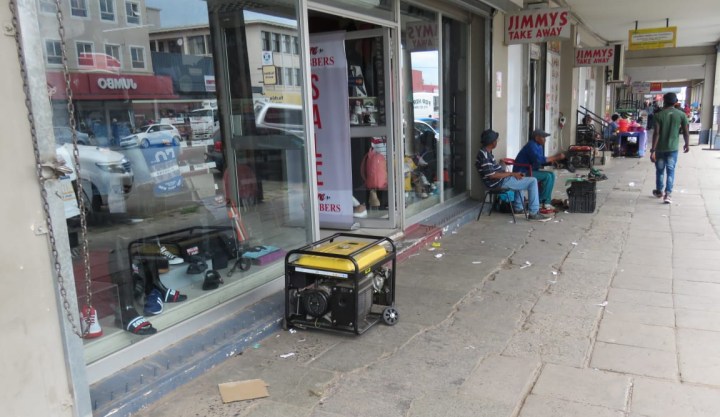
 Johannesburg mayor Mpho Phalatse and her team have tabled a plan to avoid three stages of load shedding. But will she survive to implement it?
Johannesburg mayor Mpho Phalatse and her team have tabled a plan to avoid three stages of load shedding. But will she survive to implement it?
With a price tag of R400-million, it’s well priced when you consider the economy loses R4-billion a day to rolling blackouts, according to the CSIR.
Here’s the plan:
R20-million to recommission two open-cycle gas turbine stations. This would add 74MW to city’s grid;
R175-million for smart meters so the City can cut off energy wasters and power essential needs. This would save 322MW when needed.
R85-million for ripple relay systems. With these the City could regulate the use of geysers, swimming pool motors and energy drainers like them.
R120-million to upgrade the energy management and transmission system — City Power’s is ancient.
But Phalatse is facing three motions of no confidence in two days of council meetings on Thursday, 26 and Friday, 27 January. The coalition is so tenuously balanced that she may lose her job.
The DA leads the governing coalition but the ANC has more seats. The below graphic illustrates the seat allocation. - Ferial Haffajee
 Following the threat of more legal action and discussions, Eskom finally agreed to exempt Nelson Mandela Bay's fullest dam, the Churchill Dam, from load shedding. Load shedding at high schedules has caused chaos with water distribution in the past few weeks. Due to an ongoing drought in the area, the water available for distribution is already less than demand, and load shedding the pumps caused a huge crisis as water outages occurred in 46 suburbs and key points, including the prison and a hospital. - Estelle Ellis
Following the threat of more legal action and discussions, Eskom finally agreed to exempt Nelson Mandela Bay's fullest dam, the Churchill Dam, from load shedding. Load shedding at high schedules has caused chaos with water distribution in the past few weeks. Due to an ongoing drought in the area, the water available for distribution is already less than demand, and load shedding the pumps caused a huge crisis as water outages occurred in 46 suburbs and key points, including the prison and a hospital. - Estelle Ellis

 By Velani Ludidi and Bheki Simelane
By Velani Ludidi and Bheki Simelane
DA’s ‘Power to the People’ march turns Cape Town and Jozi streets blue
Police in Cape Town were quick to act when high-spirited ANC supporters tried to approach a crowd of DA supporters as they marched to protest against the handling of the country’s energy crisis. And in Johannesburg, DA members’ placards spoke volumes: ‘Voetsek ANC’, ‘Give back power to the people’ and ‘Load shedding is killing jobs’ were just some of the slogans.
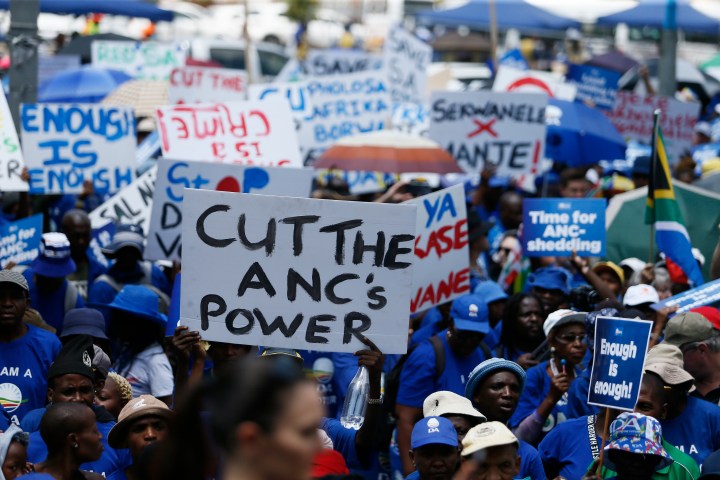
 By Michelle Banda
By Michelle Banda
DA marches to Luthuli House – ‘If we want to end load shedding, we have to start ANC shedding’
‘We don’t have an Eskom problem in South Africa, we have an ANC problem. That is why we have chosen to come and march on their offices and not the Eskom headquarters or the Union buildings,’ said DA leader John Steenhuisen during the party’s march on Luthuli House on Wednesday. The ANC Youth League, meanwhile, mobilised outside the building, accusing the DA of ‘grandstanding’.

 "We are saying to the DA, if you have the solution, please go and take it to our president. Our president is someone who listens, he’s got a listening ear. And he will see how we can incorporate all these solutions together to ensure that we bring an end to load shedding in this country," said Ronalda Nalumango, ANC NEC member. Party members gathered outside Constitution House in Cape Town in response to the DA's march. - Joel Ontong
"We are saying to the DA, if you have the solution, please go and take it to our president. Our president is someone who listens, he’s got a listening ear. And he will see how we can incorporate all these solutions together to ensure that we bring an end to load shedding in this country," said Ronalda Nalumango, ANC NEC member. Party members gathered outside Constitution House in Cape Town in response to the DA's march. - Joel Ontong
 "No other political party can stand back and say this is a one political party fight. This affects the people of the Western Cape and of the country, so the more parties come together and unite against the ANC, we will see a difference almost immediately," said Ferlon Christians, leader of ACDP Western Cape said in Cape Town. - Joel Ontong
"No other political party can stand back and say this is a one political party fight. This affects the people of the Western Cape and of the country, so the more parties come together and unite against the ANC, we will see a difference almost immediately," said Ferlon Christians, leader of ACDP Western Cape said in Cape Town. - Joel Ontong
 "Obviously this was a DA led march. You get our DA people enthusiastic, but what really hit me today was not just the DA came out, it was that citizens came out, other political parties came out and joined this march," Western Cape Premier Alan Winde told Daily Maverick at the march in Cape Town. "That shows you that there is a feeling across the citizens of this province, as we can feel across the citizens across South Africa – they’ve had enough." - Joel Ontong
"Obviously this was a DA led march. You get our DA people enthusiastic, but what really hit me today was not just the DA came out, it was that citizens came out, other political parties came out and joined this march," Western Cape Premier Alan Winde told Daily Maverick at the march in Cape Town. "That shows you that there is a feeling across the citizens of this province, as we can feel across the citizens across South Africa – they’ve had enough." - Joel Ontong
 Protestors gathered in Cape Town listen to Western Cape Premier Alan Winde, Western Cape Provincial Minister of Infrastructure Tertius Simmers and Western Cape Provincial Minister of Agriculture Ivan Meyer about the ongoing power crisis. - Velani Ludidi
Protestors gathered in Cape Town listen to Western Cape Premier Alan Winde, Western Cape Provincial Minister of Infrastructure Tertius Simmers and Western Cape Provincial Minister of Agriculture Ivan Meyer about the ongoing power crisis. - Velani Ludidi

 ANCYL national organiser Tlangi Mogale said: "The DA is grandstanding on the matters of the energy crisis issues faced by the country. There is no political party that can wake up any day and decide to march to another political party's headquarters."
ANCYL national organiser Tlangi Mogale said: "The DA is grandstanding on the matters of the energy crisis issues faced by the country. There is no political party that can wake up any day and decide to march to another political party's headquarters."
Mogale added that the DA must take those possible solutions to Megawatt Park where the Eskom offices are, not at ANC offices. - Michelle Banda
 “We are facing a serious crisis in South Africa. The crisis lies in Luthuli House where the crooks of ANC sit. That is why we are marching here. The President and the responsible departments do not care about South Africans because they are not affected by load shedding in their homes. Now poor South Africans have to pay the price for their corruption.
“We are facing a serious crisis in South Africa. The crisis lies in Luthuli House where the crooks of ANC sit. That is why we are marching here. The President and the responsible departments do not care about South Africans because they are not affected by load shedding in their homes. Now poor South Africans have to pay the price for their corruption.
"In the State Capture reports, people like former Eskom boss Matshela Koko, who are deployees of the ANC, have greatly contributed to the power issues faced today. When we say, 'deal with them', we are told we can’t deal with cadres,” says Steenhuisen to the crowd gathered in Beyers Naude Square, a short distance from Luthuli House. - Michelle Banda
 "We don’t have an Eskom problem in South Africa, we have an ANC problem. That is why we have chosen to come and march to their offices and not the Eskom headquarters or the Union Buildings,” says DA leader John Steenhuisen. - Michelle Banda
"We don’t have an Eskom problem in South Africa, we have an ANC problem. That is why we have chosen to come and march to their offices and not the Eskom headquarters or the Union Buildings,” says DA leader John Steenhuisen. - Michelle Banda
In Cape Town, a crowd of DA supporters have gathered in Church Square near Parliament.

What the analysts say:
Political analyst and Rivonia Circle director Tessa Dooms said marches are either symbolic or impactful and if the DA’s planned march “is a symbolic march, the symbolism is lost on me. The opposition party marching to the headquarters of the ANC as if they can tell another political party what to do is lost on me.
“What the country needs right now is a response that actually moves the load shedding crisis forward. I am not sure what demands they can make at Luthuli House that would have an impact on the crisis.
“It is almost like Kaizer Chiefs marching to the offices of Orlando Pirates, as opposed to meeting them on the pitch and playing the game. You do not win the match when you are not on the right playing field.”
Professor Amanda Gouws, a professor of political science at Stellenbosch University, said: “I am not sure if [the march] will achieve much. On a symbolic level, it will mean something, but it’s not going to make such a difference on the situation regarding load shedding.”
Reacting to the ANCYL’s stance on the march, Gouws said: “I think the possibility of violence is there.”

 DA leader John Steenhuisen, Ekurhuleni Mayor Tania Campbell, DA Gauteng leader Solly Msimanga and DA MP Siviwe Gwarube are among the party leaders attending the march. - Michelle Banda
DA leader John Steenhuisen, Ekurhuleni Mayor Tania Campbell, DA Gauteng leader Solly Msimanga and DA MP Siviwe Gwarube are among the party leaders attending the march. - Michelle Banda



The march to Luthuli House has gotten under way. An estimated 1 500 people are protesting ongoing power cuts.

The ANC Youth League (ANCYL) has vowed to defend the party’s headquarters and stop the DA from marching there.
Spokesperson Sizophila Mkhize accused the DA of “using the unfortunate national crisis” to attempt to score cheap political points through “senseless theatrics” of announcing a march to Luthuli House.
“We won’t be there to welcome the DA, we will be there to stop them,” said Mkhize. “They should march to Eskom, not Luthuli House. We will be there guiding anyone coming near our offices.”
Read the full story: ‘We’ll be there to stop them,’ says ANC Youth League about DA’s planned march to Luthuli House
The DA is marching to Luthuli House against the backdrop of the energy crisis in South Africa. Demonstrations organised by the party will be held across the country, with the main one in Johannesburg.
DA leader John Steenhuisen said the march would be against the “ANC-engineered” electricity crisis.

The City of Cape Town has announced that it will start paying residents for the electricity they sell back to the city after the National Treasury granted it an exemption from public procurement legislation.
"We’ve got a reply from the National Treasury, giving us the exemption we asked for. This is an NB step on the end load shedding journey," a statement from the City reads.
"We aim to buy electricity from as many City supplied customers as are willing to sell to us. These customers may now produce as much power as they can from their approved systems and feed it into Cape Town's grid. Under this plan, we will also pay these customers an incentive over and above the Nersa-approved tariff as they help us turn the corner on load-shedding."

 By Victoria O'Regan
By Victoria O'Regan
Dumped — metros start the move away from Eskom and towards independent power producers
Amid relentless blackouts, some leading metros across the country are moving forward with plans to cut loose from Eskom by bringing independent power on to the grid as quickly as possible. Here’s how three of South Africa’s major cities are progressing.
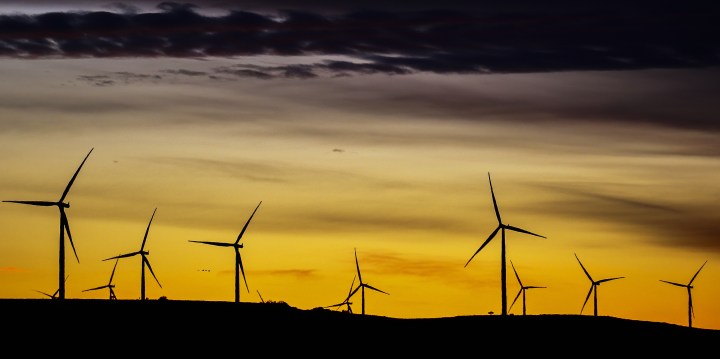
 By Julia Evans
By Julia Evans
City Power Joburg has already spent 80% of its budget thanks to blackouts, thieves and vandals
As rolling blackouts put immense pressure on ageing and poorly maintained infrastructure, vandals and thieves are cashing in, it says.

 By Tembile Sgqolana
By Tembile Sgqolana
There is nothing charming about candlelit dinners in my town in the Eastern Cape, where blackouts last for weeks
Residents of Komani in the Eastern Cape have been cooking and dining by candlelight for weeks on end, with power cuts that last way beyond scheduled bouts of load shedding that people are experiencing countrywide.


 By Stephen Grootes
By Stephen Grootes
Ramaphosa’s load shedding populism – a cheap, short-term political move that will hurt South Africa
President Ramaphosa’s call for Eskom not to hike electricity prices appears motivated by simple populism and the realisation that rolling blackouts could cost the ANC a previously unimaginably large number of votes in the general election just 18 months away.
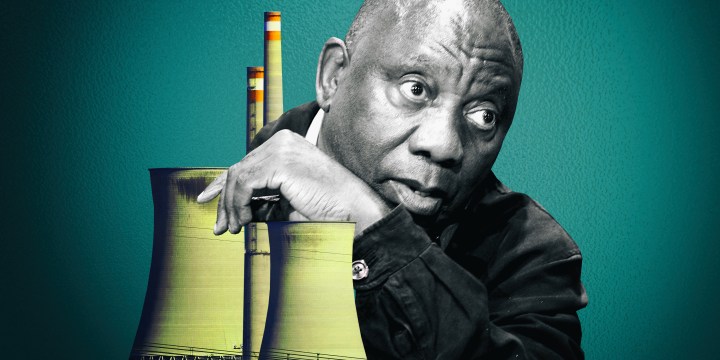
 By Tamsin Metelerkamp
By Tamsin Metelerkamp
Rolling blackouts aggravate levels of absenteeism, incomplete homework, disrupted classes in SA
Schools remain largely on their own when it comes to finding solutions to disruptive power outages.
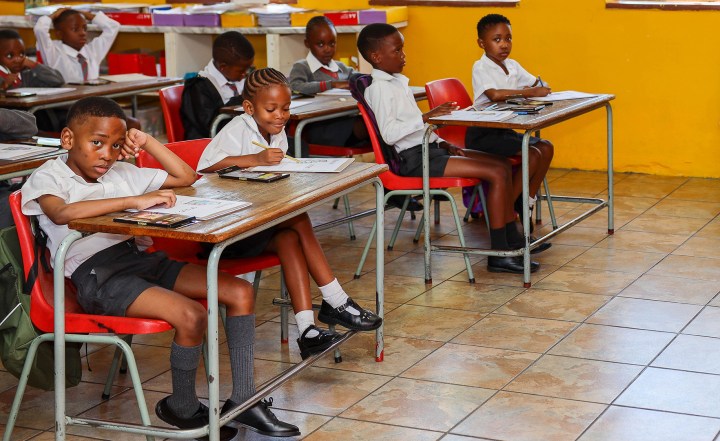
 By Nonkululeko Njilo
By Nonkululeko Njilo
Power crisis: Ramaphosa plans to switch off Eskom’s tariff hike
Despite claiming he could not intervene in Nersa’s statutory process, the President said at the Free State ANC’s provincial conference that he had asked Eskom to suspend its plans to increase electricity tariffs by 18.65%.

 By Neesa Moodley
By Neesa Moodley
Eskom quickly backpedals on statement on permanent load shedding for two years, hints at ‘good performance’ incentives for staff
Eskom clarifies its media briefing statement on rolling blackouts while the new Eskom board sets ambitious targets and hints at staff incentives to boost embattled power stations.
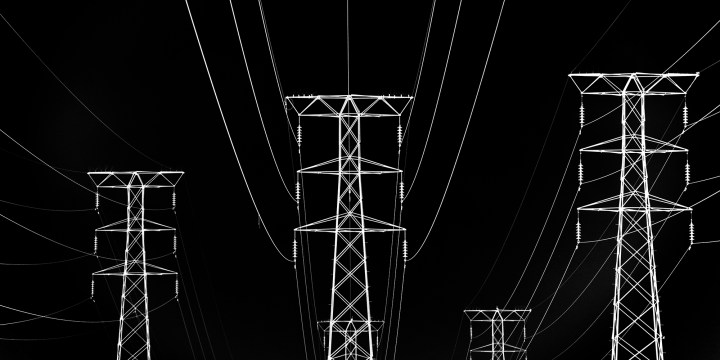
 By Cyril Ramaphosa
By Cyril Ramaphosa
‘While we all desperately want to, we cannot end load shedding overnight’
Many of the measures in our Energy Action Plan will not be felt immediately, so we are using every means at our disposal to get power onto the grid as a matter of extreme urgency. But we can all play a part.
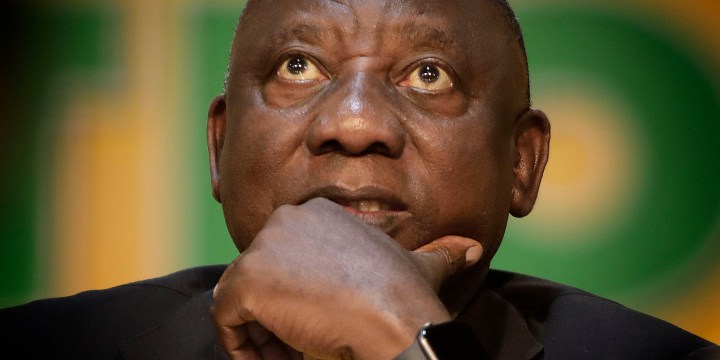
 By Estelle Ellis
By Estelle Ellis
Power to the people: How an Mpumalanga town took on Eskom and won
The Lekwa Ratepayers Association took the power utility to court over its ‘internal load shedding’, which it implemented in 2020 at the height of Covid-19, and they won.

 By Georgina Crouth
By Georgina Crouth
Wine industry lurches from a new crisis – powerlessness
Stage 6 rolling blackouts couldn’t have come at a worse time for the wine industry: at a critical phase in the harvesting period, during which farmers irrigate vineyards to manage fruit concentration and acids, to ensure better-quality grapes.
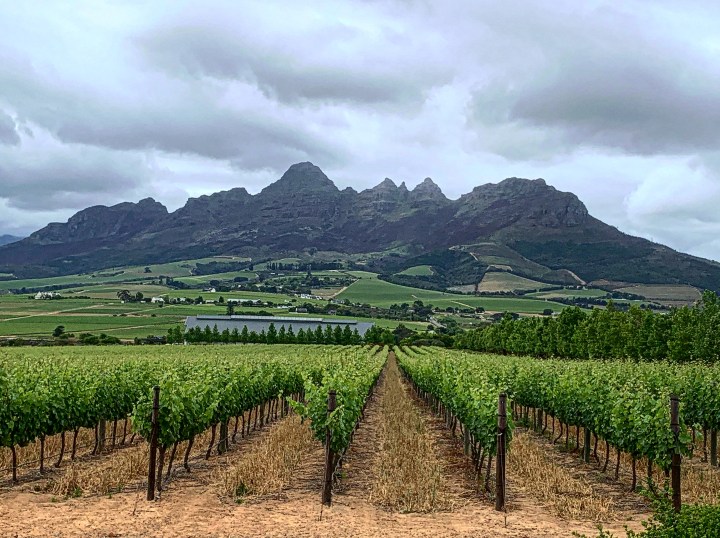
 By Ferial Haffajee
By Ferial Haffajee
Government plans to focus on six ailing power stations to resolve the electricity crisis
Emergency legislation will be tabled to get new power projects on to the grid, as a ‘web of bureaucracy’ slows progress, says the National Energy Crisis Committee of Ministers.
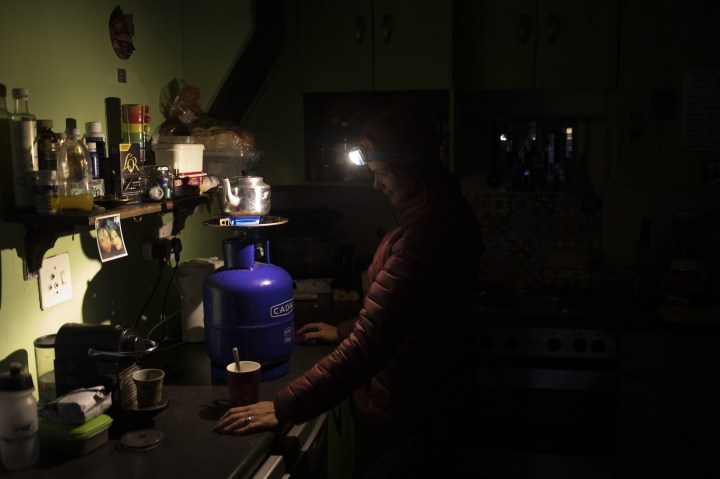
 By Mariam Isa and Chris Yelland
By Mariam Isa and Chris Yelland
Hand-to-Mouth: South Africa’s power lifeline frays as Eskom scrambles for diesel
Eskom is struggling in its efforts to obtain the diesel needed to continue running its open-cycle gas turbines which, in the face of prolonged power generation outages, is the only way the utility can stave off severe and ongoing curtailment of South Africa’s electricity supply.
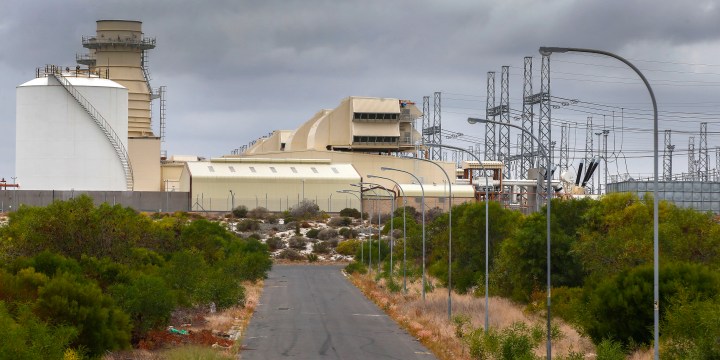
 By Naledi Sikhakhane
By Naledi Sikhakhane
Frustrated Pretoria residents protest against Eskom tariff hikes amidst intense rolling blackouts
‘Untie your hands Mr President!’ says the president of #NotInMyName Siyabulela Jentile during a protest against tariff hikes granted by the National Energy Regulator of South Africa (Nersa) to Eskom during intense rolling blackouts.

 By Tony Carnie
By Tony Carnie
More late changes to gas explosion and noise studies as Karpowership enters final lap
These risk revisions to the latest EIA studies have come to light amid heightened public awareness of gas explosions triggered by the recent Boksburg tanker disaster.
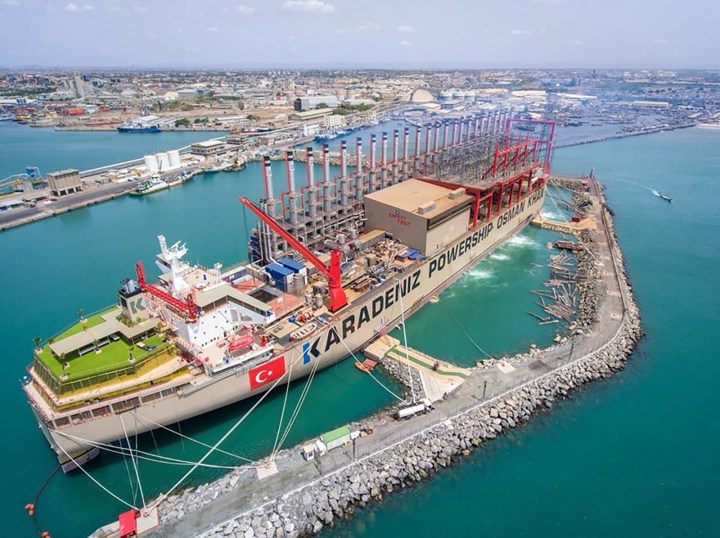
 By Marianne Merten
By Marianne Merten
Suggestions Box: How to start getting South Africa powered up and running again
South Africa, already one of the world’s most unequal countries, can ill afford the cost of persistent scheduled power outages that scupper small businesses, have an impact even on large corporates, trouble learners and increasingly pose a health risk as water and sewage treatment facilities collapse.
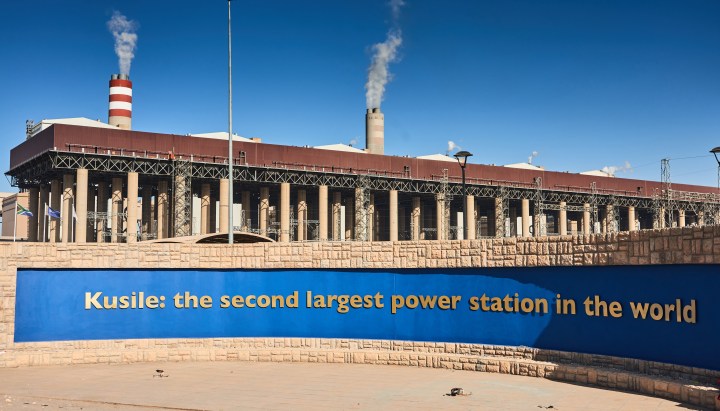
 By Marecia Damons
By Marecia Damons
Fire Gwede Mantashe, say activists as anger builds up against Eskom
Civil society groups plan protests against electricity tariff hike and blackouts.
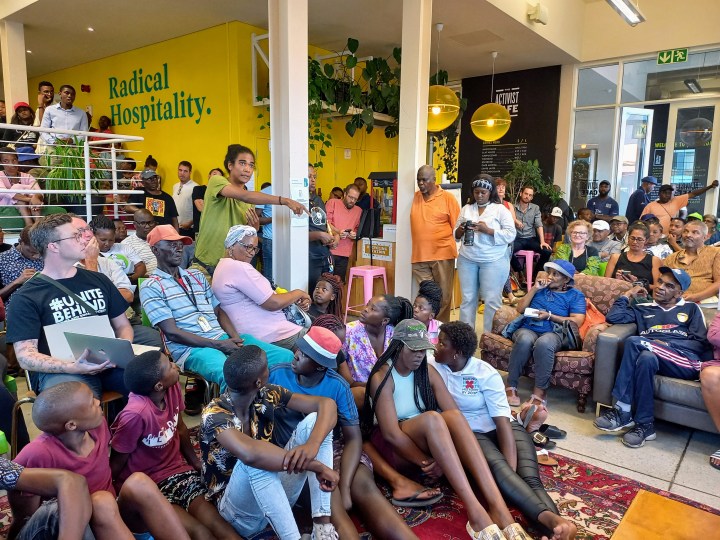
 Eskom’s own likely risk outlook to 31 December 2023 is almost solidly red (Weekly System Status Report 2023 w1.pdf) – that’s at least Stage 2 rotational power cuts, but more likely higher stages, given past trends. – Marianne Merten
Eskom’s own likely risk outlook to 31 December 2023 is almost solidly red (Weekly System Status Report 2023 w1.pdf) – that’s at least Stage 2 rotational power cuts, but more likely higher stages, given past trends. – Marianne Merten
 By Georgina Crouth
By Georgina Crouth
Rolling blackouts are putting the cold chain at risk
The see-sawing rolling blackout schedule is not only playing havoc with the economy, it is putting health and safety in peril.

 By Sukasha Singh
By Sukasha Singh
Residential solar power systems: Soaking up the sun is rewarding, but it isn’t all plain sailing
Even after your solar power system is installed, getting everyone in the house to use less electricity isn’t as simple a task as you might think.
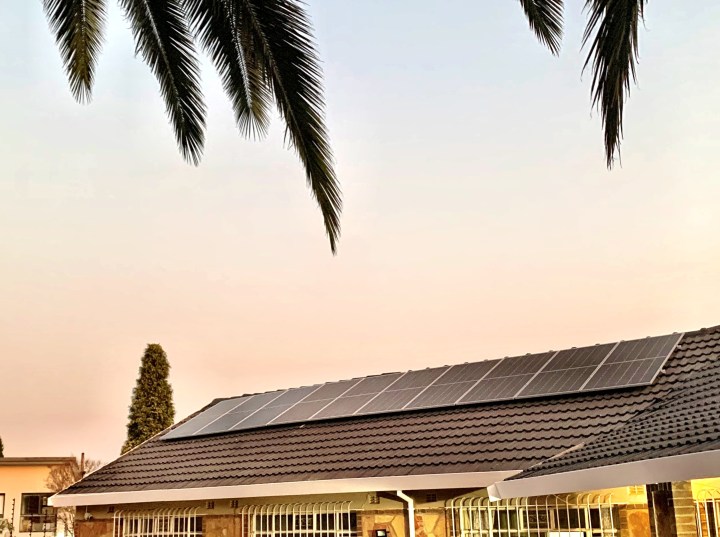
 By Mark Swilling
By Mark Swilling
Dark, Dumb and Dangerous: Inside South Africa’s perfect (electrical) storm (From December 2022)
South Africans are being forced to cope with a new normal: Stages 4 and 6 rolling blackouts for the foreseeable future. In some municipal areas, this can translate into up to 12 hours a day without electricity. What is very certain is that we will have power cuts for at least the next two years.

 By Dianne Hawker
By Dianne Hawker
NGOs ask court to force government to implement Integrated Energy Plan
Two Cape Town NGOs are demanding that President Cyril Ramaphosa and Energy Minister Gwede Mantashe properly implement the provisions of the National Energy Act to resolve South Africa’s electricity crisis.

 By Onke Ngcuka and Ethan van Diemen
By Onke Ngcuka and Ethan van Diemen
Energy Minister Mantashe has the power to end load shedding with new generation capacity – experts
Darkness with patches of light is what South Africa literally looks like at the moment. Experts spell out what needs to be done to power up our country. And all roads lead to Gwede Mantashe, the minister of mineral resources and energy.
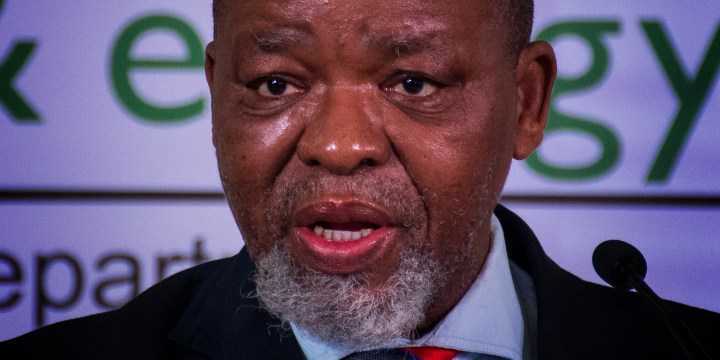
 By Marianne Merten
By Marianne Merten
Eskom reality check: it will NOT get better any time soon, regardless of SA’s WEF sales pitch/PR
Against widespread public criticism, pending litigation and social restiveness, 22 years of ANC energy (mis)governance have caught up with the governing party. It’s now a crossroads moment for South Africa – more dickering, pretty platitudes about resilience or, finally, concerted action.
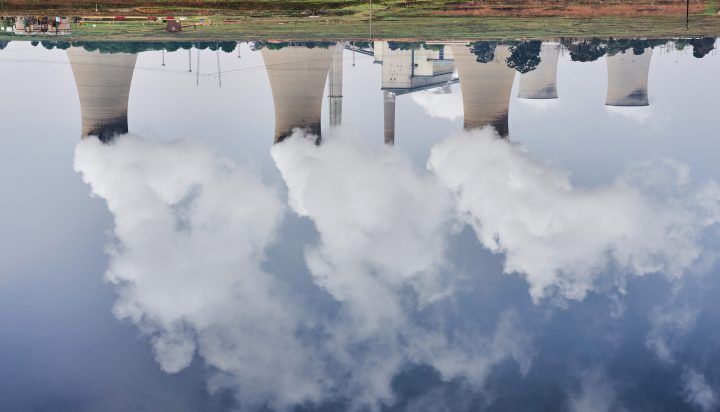
 By Estelle Ellis
By Estelle Ellis
Legal challenges mount for Eskom and Department of Public Enterprises over rolling blackouts
Seven law firms have received instructions to obtain a court order that South Africa’s electricity supply must be stabilised ‘forthwith’.

 By Nonkululeko Njilo
By Nonkululeko Njilo
DA heads to court to block 18.65% Eskom tariff hike amid rolling blackouts
Resistance to Eskom’s load shedding and tariff hikes is growing, with the DA announcing a legal bid on Tuesday seeking to interdict energy regulator Nersa’s decision to grant Eskom a 18.65% tariff hike for the 2023/24 financial year and 12.74% for the next, heralding pain for consumers subjected to intermittent power supply.
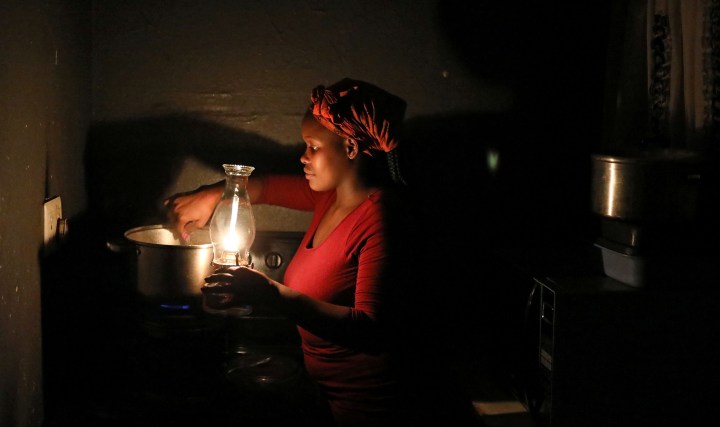
 By Paul Hoffman
By Paul Hoffman
Is suing to secure a reliable electricity supply legally viable or effective? It’s a complicated human rights issue
What options are available to wannabe litigants eager to assert what they regard as their right to a reliable supply of electricity? The Bill of Rights in South Africa contains many guaranteed rights, which cannot easily be delivered without a reliable supply of electricity. The state is obliged to respect, protect, promote and fulfil all the rights in the Bill of Rights.

 By Nonkululeko Njilo
By Nonkululeko Njilo
Out in the cold – power crisis forces enterprising ice-cream shops to brink of closure
This is a tale of two gourmet ice-cream businesses in Johannesburg facing the grim prospect of shutting their doors indefinitely amid higher stages of rolling blackouts, as they grapple with unaffordable alternatives.

 By Ferial Haffajee
By Ferial Haffajee
Government plans to focus on six ailing power stations to resolve the electricity crisis
Emergency legislation will be tabled to get new power projects on to the grid, as a ‘web of bureaucracy’ slows progress, says the National Energy Crisis Committee of Ministers.

 By Bloomberg
By Bloomberg
New law planned to accelerate power capacity in South Africa
The National Energy Crisis Committee, a body run by the office of President Cyril Ramaphosa, expects record power outages to ease as measures put in place, including a new law to fast-track plant development, take effect.

 By Estelle Ellis
By Estelle Ellis
Gatvol citizens threaten Eskom and government with legal action, demand stop to rolling blackouts
Several South African politicians and business people have instructed a legal team from seven law firms to demand that the government stops cutting the country’s power. If this cannot be done, they want an explanation. The group also wants fair compensation for the damage caused by rolling blackouts and for the government to play open cards about South Africa’s energy crisis.
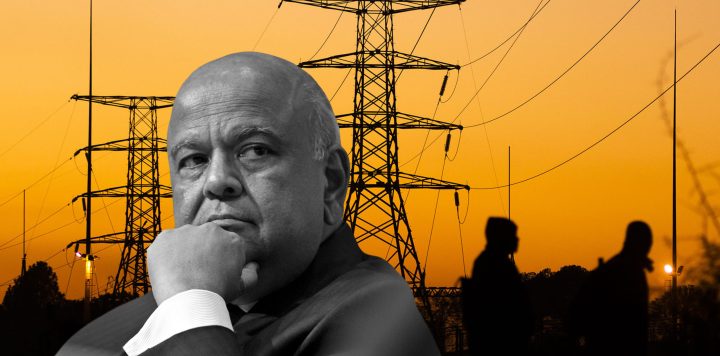
 By Stephen Grootes
By Stephen Grootes
To WEF or not to WEF: Wherever Ramaphosa may be, Eskom’s crisis remains South Africa’s true catastrophe
The announcement that President Cyril Ramaphosa has cancelled his trip to the World Economic Forum in Davos this week to deal with the load shedding crisis is but another indication of the toxic politics of our energy catastrophe. There are, however, tight limits on what the President can really achieve, and anyone expecting a short-term solution to South Africa’s power crisis will be disappointed.
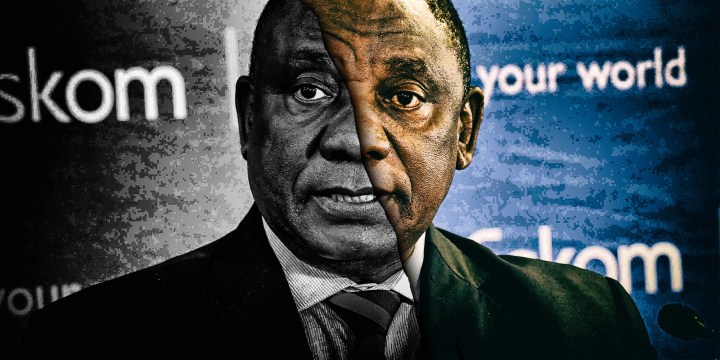
 By Tony Jackman
By Tony Jackman
Load shedding menu: Leftover pasta salad
The leftover aspect of this is twofold: first, don’t discard the bits and pieces of pasta at the bottom of a packet, and second, don’t chuck out that leftover cooked pasta.

 By Julia Evans
By Julia Evans
South Africans urged to use water sparingly as rolling blackouts hit precious resource
Municipalities and water entities across South Africa have called on residents to use water sparingly as they battle continued high levels of rolling blackouts and increased demand for water as temperatures soar.
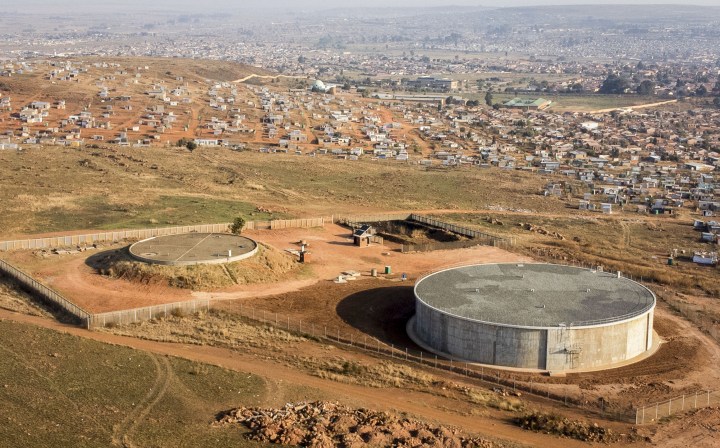
 By Michelle Banda
By Michelle Banda
National shutdown threat in protest against Eskom’s rolling blackouts and tariff hikes — Ramaphosa cancels Davos trip
A national shutdown might be looming in response to the Eskom tariff hikes and ongoing rolling blackouts.
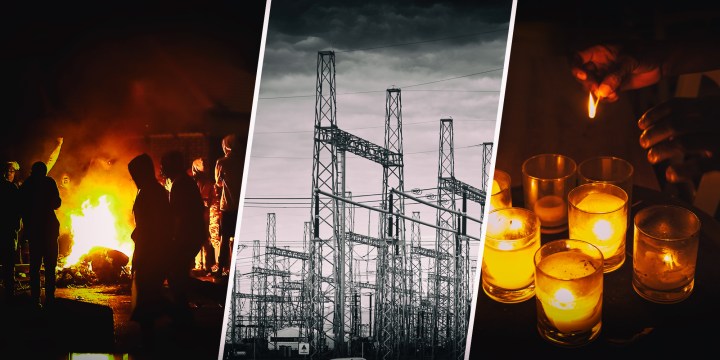
 By Victoria O'Regan
By Victoria O'Regan
South Africans make a plan in the face of never-ending electricity blackouts
Readers across the country responded to Daily Maverick’s survey on how they were surviving Stage 6 rolling blackouts when it hit on 18 September 2022, with 32.4% of respondents indicating they had moved either partially or completely off the Eskom grid. The 67.6% of respondents still on the national grid say dealing with blackouts has become second nature.

 By Malibongwe Tyilo
By Malibongwe Tyilo
Choose the right-size gas geyser to save on electricity and money
As with other alternative energy solutions, such as solar-powered home systems, it is important to consider a home’s energy needs before choosing the most efficient system in order to reap optimal cost-saving benefits.

 By Steve Kretzmann
By Steve Kretzmann
Some beachgoers undeterred by health warnings as Cape Town blames rolling blackouts for sewage spills
City of Cape Town officials say power cuts to pump stations are largely responsible for the spillages and subsequent beach closures.
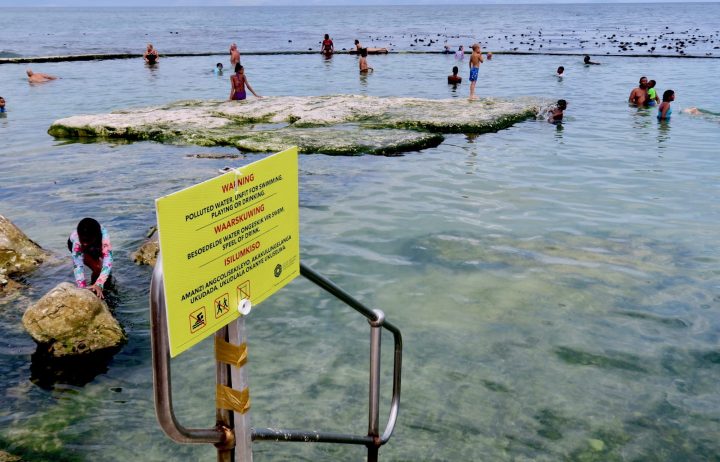





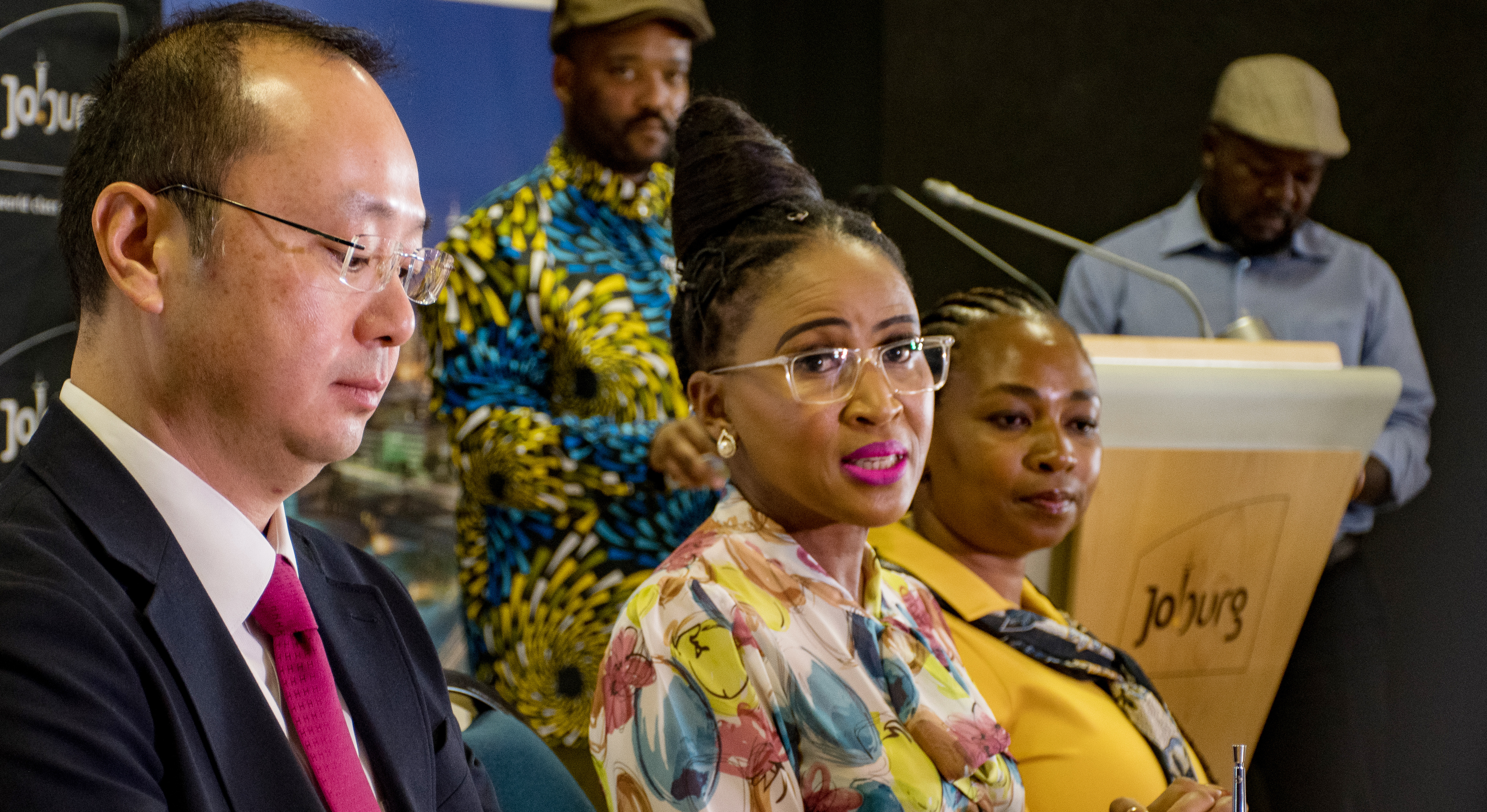 From left: MMC for Environment and Infrastructure Services, Michael Sun, Mayor of Johannesburg, Mpho Phalatse and CEO of City Power, Tshifularo Mashava during a media briefing regarding the City’s interventions to manage and mitigate rolling blackouts, 26 January 2023. (Photo: Julia Evans)
From left: MMC for Environment and Infrastructure Services, Michael Sun, Mayor of Johannesburg, Mpho Phalatse and CEO of City Power, Tshifularo Mashava during a media briefing regarding the City’s interventions to manage and mitigate rolling blackouts, 26 January 2023. (Photo: Julia Evans)